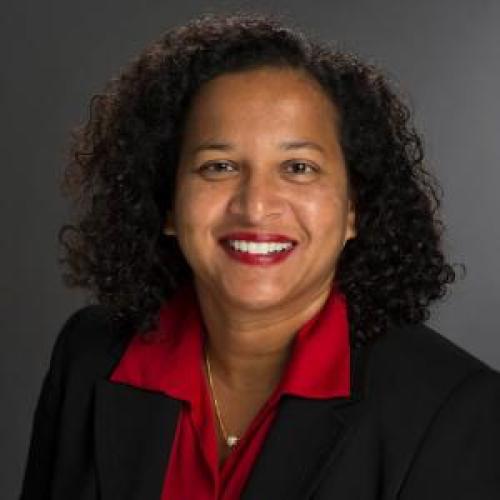Doctor of Philosophy (Ph.D.)
Accountancy
The George Washington University
2005

Ratna Dey, Ph.D., is a full professor at Howard University who researches human capital issues in the auditing and accounting profession, specifically advancement and retention issues facing Black accounting professionals. As a result of her research publications in academic and practitioner journals, she is frequently invited to present her research to practitioners at the international and national level. Dey started her career at a Big 4, became a CPA, completed her MBA in International Finance and worked for ExxonMobil for several years before completing her PhD and educating students at four universities.
Dey is interested in guiding her current and former students to achieve success in the accounting profession.
Accountancy
The George Washington University
2005
International Finance
The George Washington University
1989
Accounting
Howard University
1987
Auditing
Advanced Accounting
Financial Statement Analysis
Principles of Accounting I & II
Cost Accounting I
Auditing
Accounting for Decision Makers
Cost Management
Advanced Cost Management
Financial & Managerial Accounting
Read: Bloomberg Tax | AT&T Woos Accounting Students, Bypasses Big Four Training Ground
Read: Bloomberg Tax | EY Split Sets Stage for Big Labor Shuffle Among Big Four
Read: Bloomberg Tax | Accounting Looks to Attract Next Gen CPAs, Boost Diversity
Surveying a Shifting Landscape: The Big Four and the Rising Tide of Advisory Services
Around the turn of the century, the largest public accounting firms featured fast-growing advisory services divisions. Tension within these firms, and stricter regulations in the form of the Sarbanes-Oxley Act (SOX), led to divestitures and significant changes in firms’ mix of revenues. The landscape has again shifted, as advisory services have once again expanded and, in some cases, eclipsed traditional assurance work. This article illustrates these trends, describes the contemporary reaction from selected global regulators, and ponders the potential impact on the audit profession.
Skills Required to Succeed in Public Accounting: Perceptions of Black and White Accountants
We explore an understudied impact of race in public accounting careers: differences in perceptions of the skills necessary to succeed. Based on data collected from surveys of approximately 1,400 public accountants, we find that although the skills perceived as necessary to succeed are the same for all accountants (i.e., technical and interpersonal, practice development, social interactions, and academic achievement), practice development and social interactions are perceived as significantly more important to Black accountants. These perceptions are likely impacted by the underrepresentation of Black accountants in their firms and at their clients, which may result in fewer opportunities to acquire or improve these skills.
Racial disparities in career advancement continue to be a challenge for employers and minority workers in the accounting profession. We examine how social networks may influence the likelihood of Black professionals being placed on challenging assignments, which contributes to career advancement.
Greater Than the Sum of Its Parts: Collaborating for Diversity
The Center for Accounting Education at Howard University partnered with public accounting firms, professional accounting associations, state CPA societies, and accounting academics to formulate recommendations to improve the advancement and retention of Black accounting professionals. This paper presents the formation, operation, and outcomes of the collaboration. It also describes the value each group gained from collaborating and provides recommendations for managing collaborations. Our descriptions are offered as a model for others to translate the results of academic research into industry action.
The impact of mentoring: How to build on success
Stakeholders are calling on firms to improve workforce diversity. In a political and social environment where diversity in the workplace has taken on greater urgency, mentorship aids in the advancement and retention of Black accounting professionals in an accounting firm. Many employers are finding that instead of using just one type of mentor to develop people, they can use both formal and informal mentors, as well as sponsors, to promote success.
Audit fee trends from 2000 to 2014
In the post-scandal environment of Enron, WorldCom, and the demise of Arthur Andersen, policy makers have introduced additional costs for auditors by increasing regulations and creating a new industry watchdog – the Public Company Accounting Oversight Board (PCAOB). In this environment of constant pricing-cost tension for the auditor, the purpose of this paper is to examine audit fee trends over an extended period, 2000-2014.